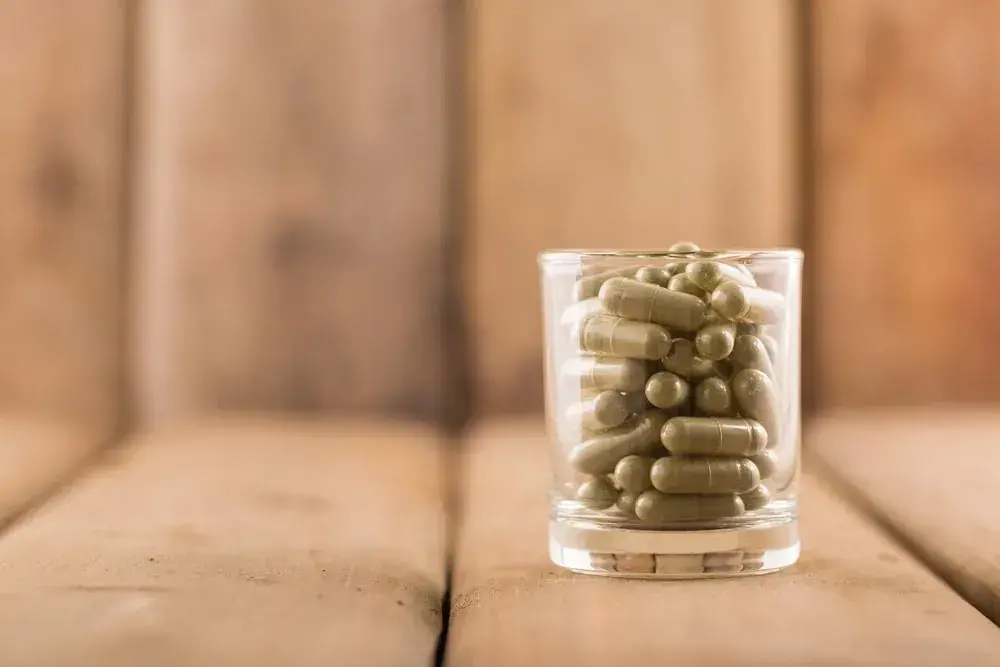
/assets/images/provider/photos/2579862.jpg)
When we have low energy levels, we tend to blame lack of sleep. While a lack of sleep will certainly cause fatigue — and sleep is vitally important to good health — it’s not the only reason we feel run down.
Diet is just as important as sleep when it comes to our energy levels. The foods we choose to eat every day can either energize us or completely deplete us. If you’re looking for ways to get more energy so you can do the things you love and make it through the day without feeling exhausted, take a good look at your diet.
The following foods offer both an important boost in nutrients and a source of natural energy. Eat these foods every day to start feeling energetic and refreshed.
1. Spinach
There’s a reason spinach is included on nearly every list of healthy foods. It contains calcium, iron, magnesium, and other minerals that can help you balance your energy throughout the day.
Of course, it also contains a good amount of vitamins A and C. Together, these nutrients deliver iron to red blood cells, which can improve blood flow and fight fatigue. On top of this, just a half cup of cooked spinach packs 3 grams of protein and nearly 2.5 grams of fiber.
2. Figs
Figs are a unique source of nutrition and energy. Their high fiber content helps control hunger, making them a great between-meal pick-me-up. They also contain plenty of potassium to help control blood pressure and electrolytes, which can beat sluggishness.
Figs also contain calcium, magnesium, and potassium, all minerals the body needs for cellular energy. Fresh figs are highly perishable and may be difficult to find in stores. Many people consume dried figs, which can be just as nutritious as long as they don’t contain added sugar or other additives.
While the fig’s powerful fiber content improves gut health, start slowly with this snack. If you eat too many figs in one sitting and you’re not used to high-fiber foods, you could end up with gas or bloating. Start with two dried figs a day and gradually increase the amount you consume over time.
3. Quinoa
This magnificent seed is one of the few plant sources that contains all nine essential amino acids, making it a valuable protein source. It’s loaded with vital nutrients that can keep you going throughout the day. It’s much higher in antioxidants than grains, making it a nutritious choice when you need some healthy carbs.
A small half-cup serving of quinoa contains just over 100 calories and delivers 4 grams of protein and nearly 3 grams of fiber — a much higher amount than most grains. It does not cause a blood sugar spike and subsequent fall like many refined grains can, which will keep your energy levels stable.
4. Eggs
Many athletes consume eggs because they are a rich source of protein, amino acids, and B vitamins — all of which work together to create a powerful lift in energy levels.
The iron and vitamin B12 in eggs is also essential for fighting anemia and its number-one symptom: fatigue. They’re naturally low in calories and contain less than one gram of sugar — a great option if you’re watching carbs and sugar or trying to lose weight.
5. Pumpkin seeds
Pumpkin seeds, sometimes called pepitas, are a popular snack among athletes, particularly runners. This is because they’re rich in healthy fats and protein, which move through the digestive tract slowly and provide long-lasting energy.
Pumpkin seeds also contain a high amount of magnesium, which is necessary for energy production and healthy muscles. Zinc and potassium also help balance the body’s electrolytes, fighting fatigue.
Opt for unsalted seeds, as too much sodium can make you feel bloated and sluggish.
6. Green tea
Green tea, like its black and white counterparts, contains caffeine. While caffeine is a well-known energy booster, green tea may be even better than a cup of coffee when you feel that mid-afternoon slump.
That’s because green tea contains L-theanine, a well-studied amino acid that stimulates a calming response in the brain. The L-theanine helps balance out the effects of caffeine, meaning you can benefit from sustained energy rather than a quick jolt.
This makes green tea a great choice when you don’t want the jitters of coffee, but need something to help you through a long meeting or strenuous workout. And, the antioxidants in green tea may help you lose weight.
7. Greek yogurt
Not all yogurts are created equally when it comes to nutrition and how effectively they can provide energy.
Many of the low-calorie or sugar-free options contain very little protein and simply won’t stick with you long enough to be considered “energy food.” If you can tolerate dairy, go for unsweetened Greek yogurt.
Yogurt is typically made by fermenting milk with friendly bacteria. But Greek yogurt is treated differently after this step. It is strained to remove most of its water and lactose (sugar). This creates a higher protein yogurt that still contains probiotics, which can contribute to a healthier gut.
All yogurts can be naturally tart, so watch for added sugar and sweeteners, and avoid these types. Opt for plain Greek yogurt and add fresh fruit for a high-energy and nutritious snack.
8. Bananas
Yes, bananas contain some natural sugar, but that doesn’t mean they should be excluded from a healthy diet.
Bananas contain tyrosine, an essential amino acid that turns up your brain’s alertness signals. They’re also a great source of potassium, which helps regulate your body’s hydration levels and circulation.
The body can use the energy from bananas easily, making them a good choice when you need to perk up right now. If you need an instant boost with some sustained energy, trying pairing the banana with a protein-rich food like a nut butter or some Greek yogurt.
9. Avocados
The versatile avocado, actually a fruit, contains a high amount of healthy monounsaturated fats (MUFAs). MUFAs not only improve heart health, but can help you feel fuller, longer between meals. This important fat helps slow down the digestion of carbohydrates to keep blood sugar levels stable.
Avocados are also very high in fiber, delivering 6 grams in just half of a medium fruit. They also contain many of the B vitamins, which enable the body to produce energy, and antioxidants like vitamins C and E.
You don’t have to eat chips and guacamole to enjoy avocados. Avocados make a great dip or spread for vegetables and sandwiches, or can be tossed on a salad or in smoothies.
10. Hummus
Hummus is usually made with ground chickpeas, sesame seeds, olive oil, and seasonings. Some types contain other legumes, such as black beans.
Chickpea hummus is a great source of energy due to its protein content, fiber, and complex carbohydrates. These nutrients work together to provide a slow, steady release of energy that can keep you feeling fuller between meals. You’ll also avoid that energy “crash” that can quickly send you to the coffee maker or the vending machine.
Hummus is rich in vitamins and minerals that help keep you feeling your best, including manganese, phosphorus, iron, and zinc. Pair it with vegetables, not chips, for a tasty and healthy energy boost.
11. Cashews
Although most nuts are high in calories and fat, their hefty nutrient content makes them a worthwhile snack. In fact, studies show that eating nuts does not lead to weight gain — and may even promote weight loss.
Cashews are a great energy snack because they have plenty of monounsaturated fat, which provides a sustained energy boost and helps balance cholesterol levels.
They also contain potassium and magnesium, which are needed for healthy muscles and energy levels, while its B vitamins, protein, and fiber give you a natural boost.
12. Beetroot juice
Beets may have specific properties that can help boost energy levels — and this is part of the reason beetroot juice is popular with athletes. Beets have naturally occurring nitrates, which can help improve blood flow and oxygen transport to tissues.
Beets also contain natural carbohydrates and fiber, providing a quick burst of energy that won’t cause a crash later.
13. Black beans
Black beans, like other types of legumes, are a great source of fiber and plant protein. Though they do contain carbohydrates, they’re the complex kind, so they deliver long-lasting energy rather than a sudden spike of blood sugar.
Just one half cup of black beans contains almost 8 grams of fiber, which can improve digestion and gut health — important aspects of energy, appetite, and weight loss.
Black beans also contain iron, magnesium, and manganese, which are necessary nutrients in the body’s energy production and oxygen delivery processes.
14. Grass-fed beef
Beef is one of the best sources of iron in a form that is easily used by the body. It also contains vitamin B12, a nutrient that’s essential for healthy blood cells and sustained energy.
Many of today’s beef products come from cows that are fed unhealthy diets or given antibiotics. Avoid this by purchasing only organic, grass-fed beef. Grass-fed beef is much higher in omega-3 fats than its grain-fed counterpart, and also tends to be lower in calories and fat overall — giving you all the protein and iron without sacrificing your healthy eating goals.
15. Water
While water obviously isn’t a food, it’s an important factor to consider if you’re trying to get your energy levels up. Not only is hydration necessary for good health, but it’s one of the best ways to keep you going from morning until night.
When you start to feel sluggish, think about how many glasses of water you’ve had today. If you’re not on track for at least 8 – 10 glasses, start chugging. For a bigger boost, add a squeeze of fresh lemon, which contains electrolytes and vitamin C.
A word about caffeine
Caffeinated drinks like coffee and energy drinks can certainly give you a jolt if you’re running on empty. But, caffeine’s effects are short-lived and don’t necessarily leave you feeling better. Often, overdoing it on the coffee can leave you feeling nervous or anxious, and once it wears off, you’re tired again — sometimes even more exhausted than before you drank it.
A cup or two of coffee or tea is fine, but know your caffeine limits and don’t drink more than usual when you’re tired. And steer clear of energy drinks, which often contain artificial ingredients and very high levels of caffeine.
Eat right to avoid energy crashes
It may be tempting to visit the vending machine or fast-food restaurant when you’re feeling exhausted and hungry. But processed foods will only make you feel worse, even if they give you a quick burst of energy from sugar. Within minutes, the body has digested much of the simple carbs and sugar, and you’re left feeling zapped of energy — and most likely, you’re hungry again.
One of the ways you can avoid junk food cravings and keep energy levels stable is to plan ahead. Take healthy snacks to work or keep some in your fridge at home. Take note of the times of day when you tend to feel tired and tempted to eat unhealthy foods. Then, have a plan in place to eat these high-energy snacks when the craving kicks in.
Snacks aren’t the only way to keep your energy up. Think about your meals and whether you’re getting a good balance of complex carbohydrates, healthy fats, protein, and vitamins and minerals. Eating low-nutrient or processed foods will cause fatigue and loss of mental focus.
Do diets leave you feeling hungry and wiped out? Need help finding a diet that keeps you feeling focused and energetic? Garcia Weight Loss and Wellness Center offers customized medical weight-loss plans that are built around your individual needs. Contact us today for your no-cost consultation!



